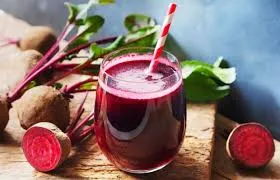Reduce Oxalates in Beets to Prevent Kidney Stones


Love Beets but Worried About Kidney Health? Here’s How to Reduce Oxalates and Lower Kidney Stone Risk
Beets are a nutritional powerhouse, celebrated for their vibrant color, earthy sweetness, and impressive nutrient profile. They are rich in fiber, iron, folate, potassium, and dietary nitrates that can help lower blood pressure and improve brain function. However, for people prone to kidney stones, beets can be a double-edged sword due to their high oxalate content.
Why Oxalates in Beets Can Be a Problem
Beetroots and beet greens naturally contain significant amounts of oxalates — plant compounds that can bind with calcium in the kidneys, forming painful calcium oxalate kidney stones. Studies reveal that up to 80% of kidney stones are made of calcium oxalate, and dietary choices play a crucial role in their prevention. Along with beets, other high-oxalate foods include spinach, rhubarb, nuts, and chocolate.
How to Enjoy Beets Without Increasing Kidney Stone Risk
The good news is, you don’t have to give up beets entirely. By following the right preparation methods and smart pairing strategies, you can still enjoy their flavor and health benefits while minimizing the risk.
1. Boil or Ferment Beets
Oxalates are water-soluble, meaning they dissolve in water during cooking. Boiling beets and discarding the cooking water can lower oxalate levels by up to 60%. Fermenting beets into beet kvass or beet sauerkraut can also reduce oxalates, as beneficial bacteria help break them down naturally.
2. Pair Beets with Calcium-Rich Foods
When oxalates are consumed alongside calcium-rich foods like yogurt, cheese, tofu, or kefir, the oxalates bind with calcium in the gut instead of the kidneys. This binding prevents them from entering the bloodstream and forming stones.
3. Mind Portion Sizes and Hydration
Avoid eating large portions of beets daily, especially when paired with other high-oxalate foods. Stay well-hydrated, aiming for 2–3 liters of fluids daily, which dilutes urine and helps flush out oxalates. Limiting salt and animal protein also reduces urinary calcium excretion, further lowering stone risk.
4. Avoid Oxalate Overload in One Meal
If you’re eating beets, avoid combining them with other high-oxalate foods like spinach, Swiss chard, or sweet potatoes in the same meal. Doubling up on oxalates in a single sitting increases the risk of calcium oxalate crystal formation.
The Bottom Line
Beets offer remarkable health benefits and can be part of a balanced diet for those prone to kidney stones — provided they are prepared wisely. Boiling or fermenting, pairing with calcium-rich foods, controlling portions, and staying hydrated are simple yet effective steps to enjoy beets without increasing oxalate-related risks. With the right approach, you can have your beets and protect your kidneys too.
Comment / Reply From
No comments yet. Be the first to comment!






